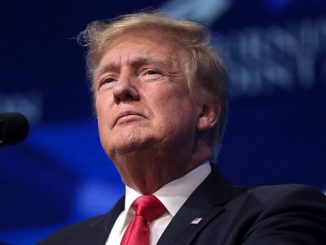
The US Supreme Court has ruled in favour of student athletes in a compensation row with the National Collegiate Athletic Association (NCAA).
In a unanimous decision, the court said limits on education-related benefits for athletes cannot be enforced.
Under current NCAA rules, students cannot be paid, and scholarship money is capped at the cost of attendance.
The NCAA defended the rules as necessary to protect the distinction between amateur and professional sport.
College sports generated $18.9bn (£13.6bn) in 2019, according to the NCAA, but athletes are unpaid.
The NCAA, the main governing body of US collegiate sports, hosts 90 championships in 24 sports, which see more than 57,000 total participants each year.
What did the court say?
The current and former athletes who filed the case had said the restrictions on compensation amounted to an unlawful restraint of trade.
On Monday, the high court agreed, ruling that the NCAA’s curbs on non-cash payments, including benefits like computers, musical instruments, academic awards and paid internships, violates a federal law called the Sherman Antitrust Act – meant to outlaw monopolies in business.
The student athletes involved in the suit were members of top-tier basketball and American football teams, which generate the most revenue for the NCAA.
Writing for the court, Donald Trump nominee Justice Neil Gorsuch said that the NCAA had essentially sought “immunity from the normal operation of the antitrust laws”.
In a concurring opinion, fellow conservative Justice Brett Kavanaugh noted that “the NCAA’s business model would be flatly illegal in almost any other industry in America.”
“The NCAA is not above the law,” he said.
Monday’s decision upholds a ruling from a federal appeals court last year. The Biden administration had filed a brief in support of this lower court decision this March.
Jeffrey Kessler, the lead attorney representing the student athletes, said in a statement the “historic decision” is about the athletes, “especially those who will never join the pros”, Reuters news agency reported.
“Hopefully, it will also swing the doors open to further change, so that we can finally see a fair and competitive compensation system in which these incredible players get to benefit from the economic fruits of their labours and pursue their educational objectives.”
What happens next?
In Monday’s decision, the Supreme Court did leave room for the sports body to design rules around student benefits.
“If the NCAA believes certain criteria are needed to ensure that academic awards are legitimately related to education, it is presently free to propose such rules,” Justice Gorsuch wrote for the court.
He added that any questions the organisation has over “the scope of its authority” with academic awards can be determined by the courts – but the NCAA has only requested such clarification once before.
“Before conjuring hypothetical concerns in this Court, we believe it best for the NCAA to present any practically important question it has in district court first.”
The court’s ruling did not address the larger – and contentious – issue of whether student athletes can be paid.
The NCAA said it would examine whether student athletes can be compensated for the use of their names and images, allowing them to benefit from endorsements and marketing deals.
NCAA President Mark Emmert said in a statement that the organisation remains committed to “working with Congress to chart a path forward”.
The last time the country’s top court heard an NCAA case was in 1984.
NCAA v the Board of Regents of the University of Oklahoma similarly looked at whether the sports body violated the Sherman Act with regards to controlling college football broadcast rights.
The court ruled 7-2 in favour of the university, and changed the way college football could be televised, leading to the billion-dollar TV contracts in place today.
Not so amateur anymore

The NCAA, in defending its limits on compensation for college athletes, had argued that the unique amateur nature of university sport set it apart from other business practices in the US.
A unanimous Supreme Court just disagreed. The same federal law that regulates massive industries and prevents anti-competitive activities also applies to intercollegiate athletics.
For the moment, that means schools can give student-athletes modest cash payments and buy them laptop computers and other educational supplies, in addition to the free tuition, room and board many already receive.
That, however, may just be the start.
While the court didn’t go so far as to allow unlimited compensation to student-athletes, Monday’s decision opens the door to future lawsuits that seek exactly that.
In fact, Justice Brett Kavanaugh, in a separate opinion, seemed to welcome such an effort.
It’s difficult to view big-time college sport in the US, with its celebrated March basketball tournament and billion-dollar autumn American football competition, as a bastion of amateur athletics anymore. That could have undermined the NCAA’s argument that an adverse ruling would drastically alter the landscape of US college sport.
That ship has long since sailed – and the nine US Supreme Court justices knew it.
Source: bbc.co.uk






Be the first to comment